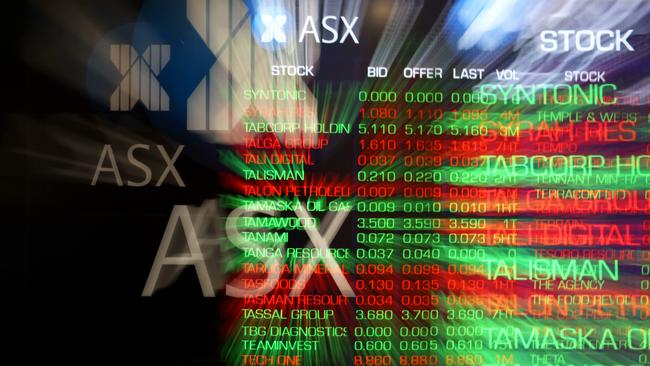Pre-war uncertainty does most markets damage

After an initial kneejerk financial market reaction, conditions tend to settle down provided the conflict remains contained and overall global economic growth or inflation is not overly affected.
The last classic example of this was the Iraq War of 2003. As far as the market was concerned, it was the uncertainty over much of 2002 that did the most damage, with equity markets under pressure all year. Global equities bottomed, however, as soon as US tanks rolled into Iraq.
Of course, no conflict is the same and the Russia-Ukraine tragedy poses its own set of risks.
Sadly, whether Ukraine stands or falls is not the major investment risk – it is a relatively small country by global standards (about 0.1 per cent of global GDP) and its economic and human suffering in itself will not roil financial markets.
Even an imploding Russian economy should not unduly dent global economic growth – Russia’s economy accounts for about 3 per cent of global GDP and is roughly the same size of Canada.
Rather, the first key risk is the potential global blowback from what sanctions are imposed on Russia, particularly given it is a major oil and gas exporter – and supplies about 40 per cent of Europe’s need for both.
There is also the risk of global financial contagion given the extreme pressure being faced by Russia’s financial markets. Indeed, given Russian difficulty in tapping foreign reserves and making international payments, another sovereign debt default – which last roiled global markets in 1998 – can’t be ruled out.
The second key risk is if the conflict escalates beyond Ukraine’s borders – either by accident or design. But as many neighbouring countries are part of the NATO alliance, such escalation seems unlikely – as, in theory at least, treaty obligation would require the US and Europe to directly intervene.
Last, there is the risk to agriculture prices should the Russia-Ukraine conflict drag on – given both countries combined account for a quarter of global grain exports. While probably not as significant as higher oil prices, higher food prices would add to the global inflation challenge.
As an energy and food exporter, sustained higher oil and agriculture prices are a mixed blessing for Australia – while it will add to local inflation and crimp consumer spending, some exporters would stand to benefit.
While Ukraine might want it, a sanctions-induced surge in world oil and gas prices is the last thing the global economy needs, as it would add to inflation concerns and potentially crush consumer confidence and spending. That said, if push comes to shove – especially if the conflict drags on – these restrictions might yet be imposed, especially if other countries such as Iran and Saudi Arabia were eventually able to make up the oil shortfall, and US or Asian LNG producers could provide more gas.
Accordingly, it probably won’t stop many central banks around the world – including potentially our own – raising interest rates this year due to high inflation and a solid economic recovery from Covid-19 shutdowns.
That said, lingering uncertainty could be enough to rule out the risk of a large 0.5 per cent increase in US official interest rates next month. It is this reduced risk, along with the avoidance of restrictions on Russian oil and gas exports, that has allowed equity markets to bounce back somewhat last week.
As and when the Russia-Ukraine conflict is settled, however, financial market attention will probably quickly return to the pre-existing problem of global high inflation and rising interest rates. Even if Vladimir Putin doesn’t cause further equity market weakness, US Federal Reserve chairman Jerome Powell just might.
Rising rates and high energy prices favour so-called “value” sectors of the equity market like energy and financials, to the detriment of “growth” exposures such as technology. War uncertainty is also seeing renewed interest in gold as a safe haven.
David Bassanese is chief economist of BetaShares.







As harsh as this might sound, the undoubted human suffering associated with limited military conflicts are often not translated into the field of financial markets. In the main, history suggests it’s the uncertainty leading up to war that causes the most damage, and the best course of action for investors once the shooting starts is to hold their nerve.